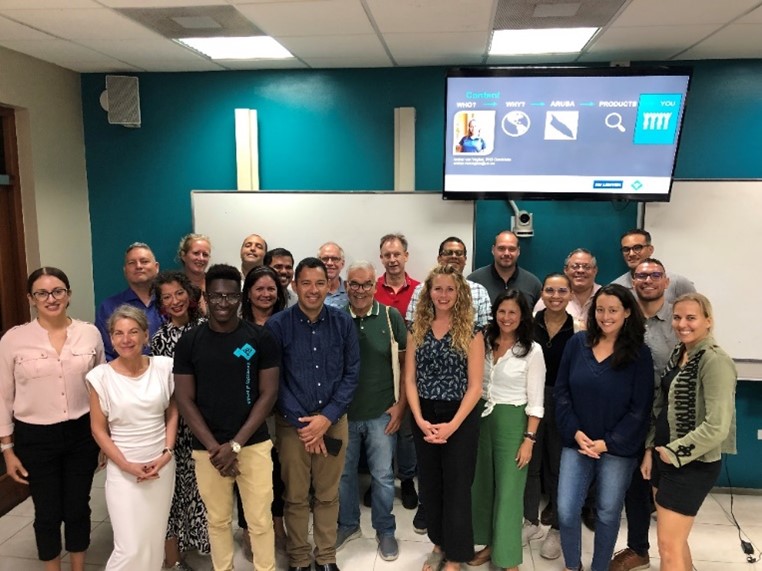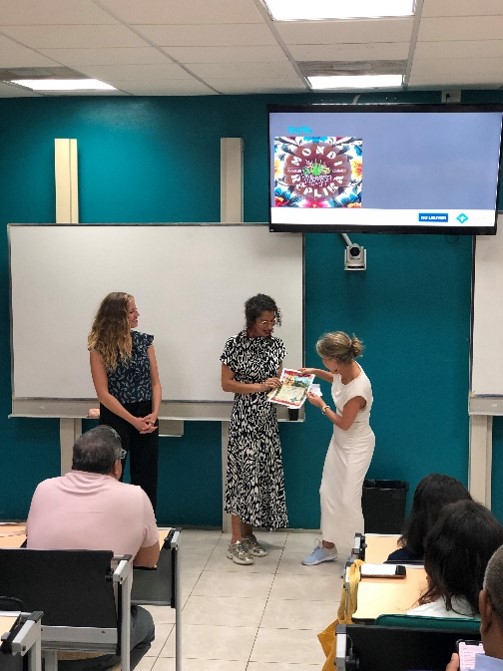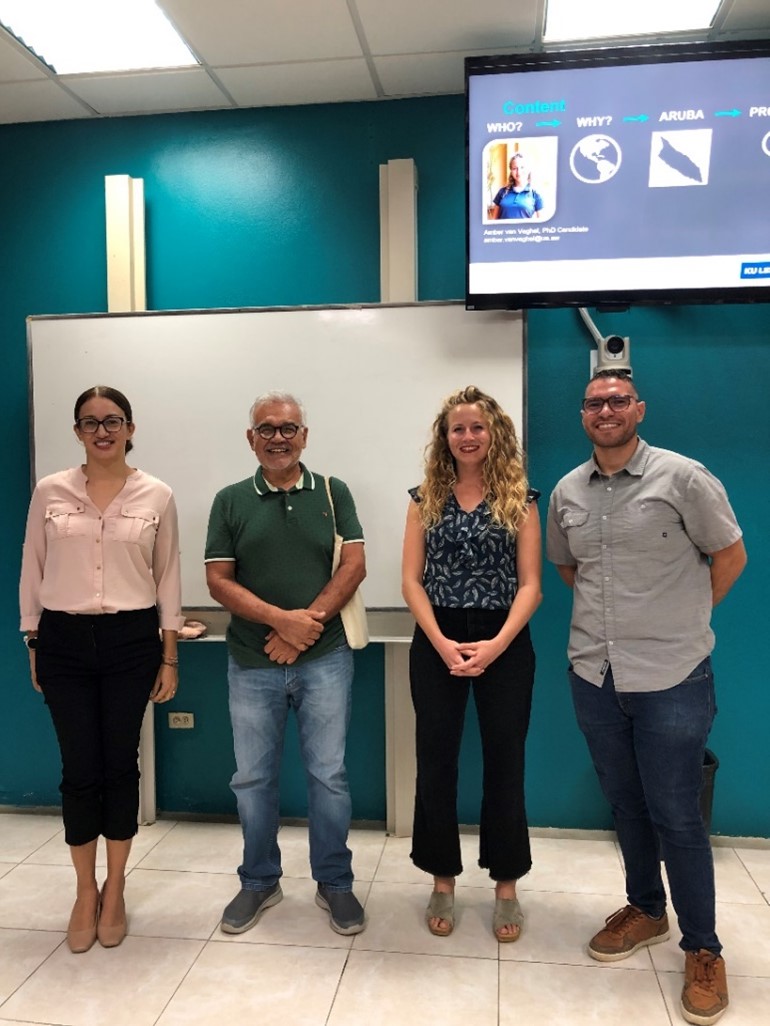The Environmental Impact of Aruba’s Food Consumption, using Life Cycle Assessment (LCA)
THE ENVIRONMENTAL IMPACT OF ARUBA’S FOOD CONSUMPTION, USING LIFE CYCLE ASSESSMENT (LCA)
The global food system isn’t doing so well and Aruba is very much dependent on this system. This was the message presented by Ms. Amber van Veghel during an activity of the KIVI Kring Caribbean – Aruba at the University of Aruba on the 11th of April 2024. Using Life Cycle Assessment or LCA, according to the ISO 14040 standard, Amber, a PhD candidate at the Catholic University of Leuven (Belgium) in close cooperation with the University of Aruba, is investigating the environmental impact of Aruba’s food consumption. A fun example showed by Amber is the difference in carbon footprint of a very famous Aruban snack called “pastechi”, which is daily consumed by a lot of inhabitants on our island. This pastry is filled with different ingredients like beef, chicken, fish, cheese or vegetables. It’s concluded that the beef containing “pastechi” has the largest carbon footprint compared to the other options. A lentil-based pastechi would have the lowest carbon footprint (see the corresponding slide).
After telling the audience why we should be concerned about the environmental impact of our food, Amber showed the question raised by 37 scientists within the framework of the Eat Lancet Commission (EAT - The science-based global platform for food system transformation (eatforum.org) in 2019: “Can we feed a future population of 10 billion people a healthy diet within planetary boundaries?” And the answer is YES but we cannot do this without a dietary shift towards more plant-based diets. And, we should also focus on reducing food waste and improving agricultural production methods.
Since Amber is still involved with her PhD research work, a lot of her data about Aruba cannot be disclosed at this time. Her promotion is expected to be at the end of the academic year 2024 -2025. Some of her slides do contain some information on the environmental impact of Curaçao’s food imports which may be comparable to the environmental impact of Aruba’s food imports.
Before starting the presentation the participants had to complete a questionnaire on their diet, i.e. average, flexitarian (with or without high milk consumption or red meat consumption), pescatarian, vegetarian or vegan. During the presentation, Amber calculated how well the audience was doing with the carbon footprint of their diet. Unfortunately, the carbon footprint our diets was above the limit. To lower our carbon footprint, Amber invited the audience to consume a bit less red meat and bit more vegan meals, while of course still enjoying the experience of eating. To help people with that, Amber organized a raffle among the participants. The winner won a voucher to dine at a Holistic Local Plant based restaurant in Aruba called “Mondi Replika”. The owner of this restaurant was also present and informed the participants on the objective of her holistic concept and invited all to come to proof the food. After all the proof of the pudding is in the eating. Information on vegan restaurants in Aruba can be found on the website Vegan Aruba: The best resource for vegan tourists and locals on the island
Another nice initiative by Amber was to have this presentation filmed. The video impression can be found on Instagram: Amber S. van Veghel (@ambervanveghel.phdcandidate) • Instagram-foto's en -video's
And this presentation can be found here.



